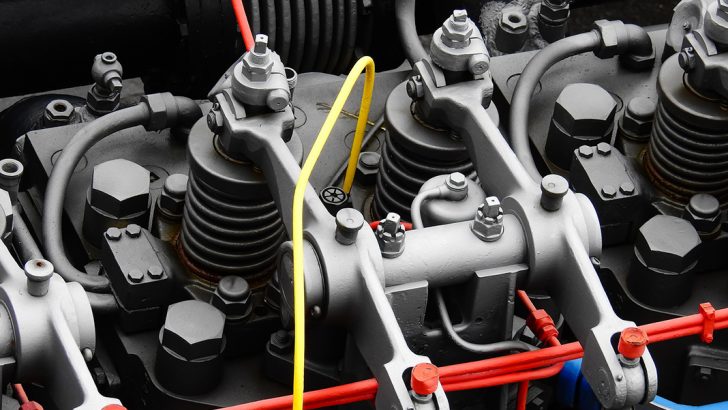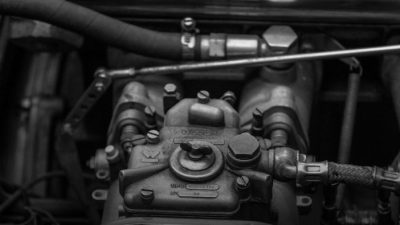Tips for Keeping Your Diesel Engine in Good Condition

Tips and simple methods to keep your engine running smoothly.
Special attention and care are needed for any kind of vehicle you have. Depending on whether they have gasoline or diesel engines, knowing how to maintain and keep these engines in good condition ensures their longevity.
Keep in mind that diesel engines and gasoline engines have different maintenance methods. Some are the same, but in most cases, they aren’t. It also depends on how you use your vehicles.
Diesel vehicles often see more rough work. They can perform a variety of tasks, such as pulling and pushing and carrying heavy loads. If this is how you use your diesel vehicle, then you must put extra maintenance care for your vehicles to remain in excellent condition.
While you can bring your diesel-powered vehicles to professional mechanics, it’s always better to know some of the day-to-day maintenance basics. These maintenance basics not only make your engines work better. They also prolong your vehicle’s longevity, and most importantly, save you loads of money from having to unnecessarily take it for servicing and maintenance.
Let’s just keep it simple – general maintenance of your diesel is imperative. It helps to ensure your engine remains at an optimal condition. One thing you should know is diesel engines tend to incur fewer problems compared to gasoline engines where general maintenance would cost you a bomb. In fact, it helps you save money in terms of replacement and repairs.
Let’s take a look at how the average Joe can maintain a diesel engine. Along the way, you’ll also learn other handy tips and simple methods to keep your engine running smoothly.
1. Choose the right fuel.
Whenever you drive your vehicle to the fuel or gas station, you want to choose or fill your tank up with the best-quality fuel as you can manage. One wise or best practice is to fill your tank up to its fullest instead of just a few liters. You want the best kind of fuel for your vehicle simply because a lower quality fuel will have a more drastic impact on your vehicle’s fuel injectors.
Fuel injectors are expensive and are more prone to damage, so you want to prevent them from frequently replacing them often by doing the bare minimum, which is to get the best fuel. In a normal vehicle, there are often four injectors, and because of this, replacements can quickly inflate the overall cost of repair. The best way to find out if your fuel injector is damaged or needs cleaning is to check the exhaust fumes appearing – are they very white or very dark? If you notice problems with your diesel engine and you’re not sure of what can be done, speak to a specialist in diesel parts. You can visit the page of Goldfarb & Associates, for instance, to explore their extensive inventory online, or visit their diesel parts warehouse to find what you need in person. You’ll find knowledgeable staff and a warm welcome at their facility in Rockville, MD.
2. Allow your vehicle to cool down.
To keep your diesel engine running in good shape, you must allow your turbocharger to cool down. After every journey, allow a cool-down of at least 20 seconds. This varies depending on how long of a drive you’ve gone on. If you were on a longer journey, allowing your turbocharger to cool down for two minutes is ideal. How do you allow your vehicle to cool down? Just put it in neutral, and allow it to cool down for the recommended time when you come to a stop and end your journey.
The reason you need to do this is to keep the turbocharges in good condition. Just like the fuel injectors, turbochargers are also pricey, and it also depends on the make of your vehicle. A clear indication that your turbocharger needs replacement is when you hear whistling noises and experience a clear loss of power. Also, in some cases, you’ll see that the exhaust fumes have a blue-tinted color.
3. Keeping your RPM moderate
Apart from letting your vehicle cool down, keeping your RPM at a moderate level is also imperative. The RPM (revolutions per minute) kept at an optimal level prevents any damages to the turbocharger, and it also helps protect the gearbox from vibrations.
4. Keep your filter clear.
A basic process of diesel engine maintenance is replacing your fuel, oil, and air filters on an occasional basis. For diesel vehicles, specific filters have been included to lessen emissions. When these filters aren’t cleaned properly, a build-up of ash will happen and this will, in turn, damage the filter. If the filter is damaged, you’ll end up paying more fees to get it repaired.
5. Extra care and maintenance during winter
The steps and tips above are essential in guaranteeing an optimal engine that’s not prone to incessant damage. However, when it comes to winter, you need to pay special attention. Firstly, keep the tank full each time you fuel at the station. It’s also imperative that you don’t leave your vehicle out in the cold for too long, especially if there’s a low amount of fuel in the tank. Also, replace your filter before winter sets in and do an engine check. This is so that if your vehicle needs any repairs, it can be done before the start of any snowfall.
Final Thoughts
Keep in mind that these tips are all for general maintenance to help ensure your engine remains optimal. It’s also worth noting that every diesel engine is different because of the various factors that co-exist, such as the vehicle type, the way it’s used, the manufacturer, and the age of the care.
Ensuring you do your best to take care of your vehicle means fewer trips to the mechanic. You want your vehicle to work and perform as best as possible because even if it may be just a liability asset, you still invested in it, so make sure you get your money’s worth by taking extra care and maintenance.
Source: industrytoday





